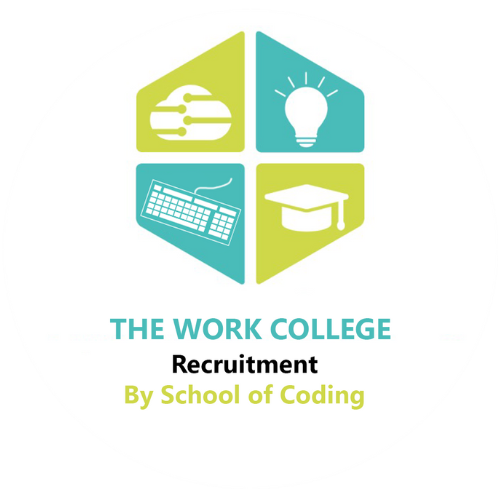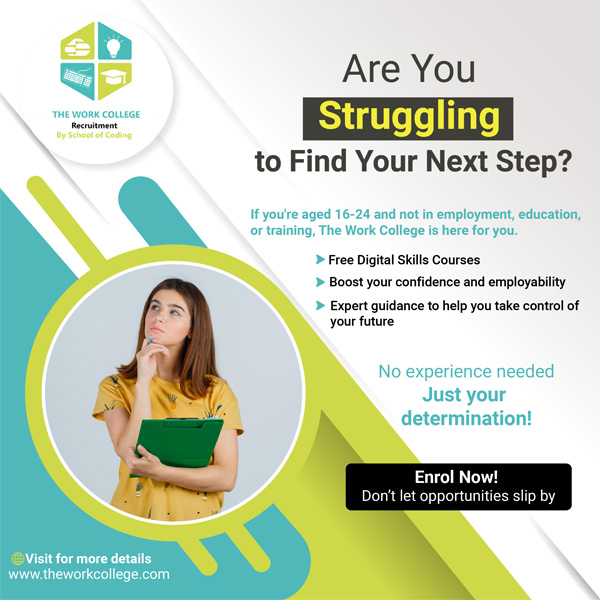Job interviews can be stressful, but they also provide an opportunity to demonstrate your talents, personality, and suitability for the position. Whether you’re preparing for your first interview or looking to improve your technique, learning the art of impressing interviewers can put you on the fast route to success.
In this post, we’ll go over 7 tips to impress at a job interview that can not only help you stand out but also improve your chances of getting the job. We’ll cover everything from preparation strategies to behavioural approaches, as well as answer some of the most often-asked interview questions. These are practical, actionable tips that will help you feel secure and make a lasting impression on recruiters.
1. Research the Company Thoroughly
Why it’s important: Interviewers want to see that you’re truly interested in the company and not just seeking for a job. Thorough research demonstrates that you care and are committed.
How to Impress:
- Visit the company’s website to learn about its mission statement, services, and latest news.
- Research their competition, industry trends, and major projects.
- Use LinkedIn to learn about your interviewees’ professional histories and areas of interest.
- Prepare to incorporate your findings into your responses, showing how your talents connect with the company’s goals.
Pro tip: Instead of saying, “I love your company,” say, “I was impressed by your commitment to sustainability, especially through your latest project on eco-friendly packaging.”
FAQ: Should I research the company, even if I am familiar with it?
Yes. Even if you already understand the fundamentals, delving into specifics such as the company’s most recent issues, projects, or breakthroughs can generate interesting conversation starters.
2. Tailor Your Answers to Fit the Job Description
Why is it important? Tailoring your responses demonstrates that you are not only interested in any job, but in this specific position. It emphasises how your talents and experiences perfectly match what the organisation is looking for.
How to Impress:
- Examine the job description closely, focussing on relevant credentials, abilities, and responsibilities.
- Determine how your experience relates to the requirements for each function.
- Structure your replies to behavioural questions using the STAR technique (Situation, Task, Action, Result).
Pro Tip: If the job description promotes teamwork, describe an example of how you effectively coordinated with a team to fulfil a tight deadline. Demonstrate how your role was critical to achieving success.
FAQ: What if I do not meet all of the qualifications listed in the job description?
That is okay! Focus on the talents you do have that are relevant to the work, and express how willing you are to learn and progress. Employers frequently place equal weight on potential and excitement as they do on qualifications.
3. Practice Answering Common Interview Questions
Why is it important? Preparing for typical interview questions allows you to deliver polished, confident responses without seeming rehearsed. Being prepared also reduces nerves and allows you to focus on developing rapport with your interviewers.
How to Impress:
- Prepare replies for queries such as “Tell me about yourself.” “Why do you want to work here?” “What is your greatest strength/weakness?”
- Tailor your response to demonstrate why you are a good fit for the organisation and the post.
- Practise with a friend or in front of a mirror to improve your delivery.
Pro Tip: Prepare for unforeseen queries by carefully reading your CV. Interviewers may enquire about specific projects or jobs to measure your problem-solving and critical-thinking skills.
Also Read – Anatomy of an Entrepreneur
FAQ: How do I prevent seeming rehearsed when responding to questions?
Focus on the key points you want to convey rather than memorising exact sentences. Keeping your answers flexible ensures you’ll come across as more authentic.
4. Dress Professionally and Appropriately
Why is it important? Your appearance is part of your first impression. Dressing adequately for the company’s culture demonstrates that you understand their surroundings and appreciate their professional standards.
How to Impress:
- Before you arrive, research the company’s dress code. For example, a tech company may want business casual, whereas a corporate office may anticipate formal wear.
- It is usually safer to be slightly overdressed rather than underdressed.
- Pay attention to grooming—make sure your hair is nice, your shoes are shined, and your entire appearance is clean and professional.
Pro tip: If you’re unsure about the dress code, ask the recruiter or HR person before the interview.
FAQ: Can I act casual if the workplace has a laid-back atmosphere?
Yes, but opt for “smart casual.” Even in relaxed environments, you want to show you’ve made an effort. Avoid wearing anything too informal or distracting.
5. Show Enthusiasm and Confidence
Why is it important? Enthusiasm indicates your delight about the prospect, whereas confidence informs interviewers that you are capable of handling the job’s obligations.
How To impress:
- Smile, establish eye contact, and deliver a firm handshake (if in person).
- Use positive body language by sitting up straight, leaning in slightly when speaking, and avoiding crossing your arms.
- When answering enquiries, spend a few seconds to collect your thoughts before using filler words like “um” or “uh.”
- Ask intelligent, job-related questions that demonstrate your interest in the position and firm.
Pro tip: Maintain a balance of confidence and humility. To make a good impression, you must be confident but not arrogant.
FAQ: How can I appear confident even when I’m nervous?
Deep breathing exercises might help you stay relaxed before an interview. Focus on your strengths and remind yourself why you’re a great fit for the role. Preparation is the best confidence booster.
6. Be Mindful of Non-Verbal Cues
Why is it important? Nonverbal communication has the potential to be more effective than spoken communication. Your posture, facial emotions, and movements all influence the impression you make on the interviewer.
How to Impress:
- Maintain open body language by facing your interviewer, avoiding fidgeting, and gesturing naturally while speaking.
- Mirroring your interviewer’s body language gradually can help you establish rapport.
- Pay attention to your tone of voice; a consistent, positive tone indicates confidence and enthusiasm.
Pro Tip: To retain professionalism during a virtual interview, ensure that your background is clean, the lighting is adequate, and the camera is positioned at eye level.
FAQ: Can nonverbal cues influence my interview outcome?
Absolutely! Positive nonverbal presence can complement your spoken responses, while negative indicators like poor posture or lack of eye contact can detract from your message.
7. Follow Up After the Interview
Why is it important? Sending a follow-up note after the interview not only demonstrates respect but also confirms your interest in the post. It gives you an additional opportunity to make a good impression.
How to Impress:
- Please send a thank-you email within 24 hours following the interview.
- Mention particular points discussed during the interview to demonstrate your excitement for the position.
- Keep it concise but personal—thank the interviewer for their time and mention something you find particularly interesting or exciting about the position.
Pro tip: If several people interviewed you, tailor each thank-you note to the individual interviewer.
FAQ: What happens if I don’t hear back from my follow-up?
Wait around a week before sending a courteous follow-up email to enquire about the progress of your application.
Conclusion
Making a lasting, favourable impression distinguishing you from other candidates is essential for a successful job interview. Follow these 7 professional strategies to boost your confidence and increase your success chances. These tactics, which include researching the company and demonstrating excitement and professionalism, have been proved to impress hiring managers and earn you your dream job.
Remember that each interview is an opportunity to learn, so take notes on what works and keep refining your approach.
Frequently Asked Questions (FAQs)
How can I impress in an interview?
Impressing at an interview entails more than simply providing the “right” answers. Employers seek confidence, preparation, and genuineness. Begin by thoroughly investigating the organisation, learning about its mission, beliefs, and recent achievements. This shows genuine curiosity. Dress professionally for the job, come early, and greet your interviewers with a firm handshake and a cheerful attitude. During the interview, listen closely to each question, respond simply, and use real-life examples to demonstrate your abilities. Highlighting transferable talents, such as problem-solving or teamwork, can make a lasting impact. Finally, demonstrate excitement – employers want to see that you are not only capable, but also enthused about the chance.
How many interviews does it take to get a job?
There is no single solution because it is dependent on the organisation, role, and industry. On average, candidates may go through two or three phases before receiving an offer. Entry-level employment frequently entails only one or two interviews, whereas professional or technical roles may require numerous rounds, ranging from phone screenings and panel interviews to practical assignments or presentations. Senior posts may involve five or more steps, especially if they require approval from multiple decision-makers. While the process may be lengthy, consider each stage an opportunity to establish rapport and demonstrate your suitability. Persistence is essential; even if one opportunity does not pan out, each interview helps you improve your skills for the next.
How can I stand out after a job interview?
Standing out does not stop when you leave the interview room. A meaningful follow-up email sent within 24 hours can set you apart. Thank the interviewer for their time, express your interest in the position, and briefly discuss how your talents are aligned with the company’s aims. This emphasises both professionalism and passion. In addition, if you discussed a project or offered ideas during the interview, mention it in your email to remind them of your proactive thinking. Maintaining professional decorum, such as replying to correspondence immediately, improves your image. Employers remember applicants who go the extra mile, so tiny acts of civility can leave a lasting impression.
What should I say to impress in a job interview?
What you say during an interview should be customised to the employer’s needs rather than just your own accomplishments. Use powerful, uplifting language that expresses confidence without arrogance. Instead of merely saying “I’m a good team player,” you should explain, “In my last role, I collaborated with colleagues across departments to deliver a project two weeks ahead of schedule, which improved client satisfaction.” This demonstrates your influence with evidence. Employers value inquiry, so come prepared with insightful questions to ask at the end of the interview, such as “How does this role contribute to the company’s long-term vision?” or “What qualities have made previous employees successful in this position?” Thoughtful comments and queries like this show that you are active, forward-thinking, and serious about the role.








